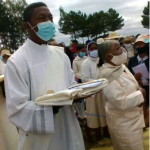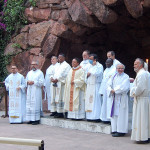Social and political overview of the current situation in Chile. The consequences of the pandemic. The challenges for the Christian community.
Normally, Chile does not make much of the international and world news. It gave the impression of being a more or less quiet, fairly safe country, compared to other parts of the Latin American region, with a certain well-being, at least apparent, that attracted a considerable flow of immigrants in search of better economic prospects. Corroborating that perception, last year President Sebastián Piñera said with some pride that Chile was like an oasis within the whole Latin American context.
The popular protests of 2019
A few days after this bold and presumptuous statement, events crudely disproved this perception of an oasis of peace and tranquility. On Friday, October 18th, 2019 (the 18th), a strong movement of protests and revolts broke out not only in Santiago, but in several important cities of the country. What triggered these movements was the 30-peso increase in the Santiago subway fare. Everyone realized instantly that it was not a matter of thirty pesos; “not thirty pesos, thirty years”. The people showed and noticed their discontent and anger accumulated over thirty years, years that were marked by abuse, lack of participation, disinterest of the political class towards the people. The people demanded an end to miserable and unworthy pensions, to classist health care, to the abuse of the banks and their usurious credits, and to classist and elitist education. Days passed with much violence, burning of subway stations, looting of supermarkets, even in several places temples were robbed, especially Catholic ones. For example, in the city of Valdivia (800 km south of Santiago), an attempt was made to loot San Francisco church and some of the furniture in that church was burned. Our confreres who lived in the same area were not harmed, but they spent several days and nights in fear and insecurity. A state of emergency was decreed in the country and a curfew was in effect at night.
Violence against demonstrators
Demonstrations upon demonstrations in Santiago and in several cities followed for several weeks. On Friday, October 25th, the largest march/protest ever seen in Santiago and in Chile took place: 1,200,000 (one million, two hundred thousand) people gathered to express their discontent, their frustration, and their demands and desire for change. It was a peaceful march, despite some violent incidents. During the following weeks, the protests and demonstrations continued, in a tense and explosive climate: what inflamed the protesters and public opinion, was the action of the carabineros (the police) who committed frequent abuses of power and used disproportionate violence against the demonstrators; there were a considerable number of people with eye or other injuries from the use of bullets and pellets. The repression was harsh, and there were even cases of torture by the security forces.
Towards a new constitution
On November 12th, an agreement was signed between the politicians of the different parties to call a vote on the question of whether or not to draft a new constitution. The date of this ballot was set for Sunday, April 26th, 2020. This agreement reduced the violence of the demonstrations, but it did not end with them; the people did not give much credit to this agreement signed by the politicians. There was a climate of deep distrust in the authorities and in the forces of order. Protests and demonstrations continued almost without interruption, especially in the Plaza Italia (also called Plaza Baquedano) where there were constant fights between demonstrators and police.
Covid-19 and its consequences
What stopped the demonstrations was not the agreement of the politicians, nor the drastic action of the forces of order, but that small virus called covid-19 that brought with it a sequel of contagion and practically paralyzed the country. A quarantine and curfew were decreed in the cities and regions, according to the virulence of the infections. Commerce was practically paralyzed, agglomerations and meetings were prohibited, contacts between people were reduced to a minimum, at the end of March all meetings and liturgical celebrations were suspended. Also, the Church had to organize its mission through social networks; Masses were transmitted through Facebook, the sacraments of baptism, confirmation, marriages… were postponed “until after…”. All meetings and gatherings are done online, by Zoom or Google Meet. People in parishes and schools are grateful for this effort and value it, but they clearly feel the desire and “nostalgia” to see each other face to face, to greet each other, to see the expressions of the face and eyes, to see a smile, and not a face covered by a mask. During the six months of these restrictions we continued to reach out to people through social networks to keep in touch and continue to deliver the message of the Gospel and the closeness of God in these circumstances.
With these restrictions reducing social and public life almost to a minimum, it was foreseeable that social problems would increase; layoffs and unemployment, the lack of resources that hit hard the homes where the monthly salary no longer had reached… poverty increased a lot, as did insecurity for the future, how long will all this last? Will I be able to save myself from the contagion, or will it touch me too, or someone in my close environment?
Poverty and solidarity
In the face of these distressing situations, many people, especially in the parish or neighborhood communities, realized that the only way to face this emergency was through determined and effective solidarity action. In all the parishes common pots, solidarity canteens, food collection, etc. were organized to meet the most urgent needs of the unprotected families. This generosity allows us to help a large number of people and families who had been left without resources. In the communities, the emergence of the virus is lived as a challenge, a sign from God that calls us to have more solidarity, justice and brotherhood, to care for one another and support each other.
The resumption of the confrontations and the abuses of the church
On Sunday, October 18th of this year, remembering what happened last year, there were strong demonstrations, with many fights between police and demonstrators. Even in Santiago, some protesters burned down two Catholic churches. These images made an impact and were known throughout the world. An attack against the Church as such? I suspect that there was another possible explanation, the Catholic Church in Chile has lost much of its credibility and prestige due to the abuses that several of its members, including those of the hierarchy, have committed against minors or have hidden and silenced these abuses. I believe that the demonstrators who burned the temples have felt that this Church, or this part of the Church, is just as abusive as the politicians, with the aggravating circumstance that the Church’s hierarchy abused the trust of the people and violated their conscience.
Way of living together
On Sunday, October 25th, a vote was held on the question of whether or not to draft a new Constitution. This ballot had been scheduled for April 26th, but due to restrictions caused by the pandemic it could not be held on that date. There was a massive participation, despite the fact that the vote was voluntary in Chile, and the large participation of young people was remarkable. The alternative “I approve”, in favor of a new Constitution, won by an overwhelming majority; 79% of the voters expressed themselves for a new wording of the Fundamental Charter. Only three communes in Santiago, the wealthiest ones, marked their preference for the current Constitution, which practically dates from the time of Pinochet. And also the great majority expressed their decision that the drafting of this new Fundamental Charter be entrusted to a commission elected by universal vote, not to a commission of parliamentarians and politicians; a commission elected to represent the entire spectrum of the national reality. This commission, which will be elected next year, will have a period of two years to present the new Constitution which will then be submitted to a referendum.
In our communities, we continue to work serenely in the parishes and schools where we carry out our mission. In spite of the limitations imposed on us by the health situation, we can walk with our communities, using the means that technology puts at our disposal. Like all people, we hope that in the not too distant future we will be able to return to the celebrations and face-to-face meetings, to see and feel that we are a community of believers, the family of God who loves to gather around the Lord, to be witnesses of His love in this world that is hungry for the Father’s loving presence.




